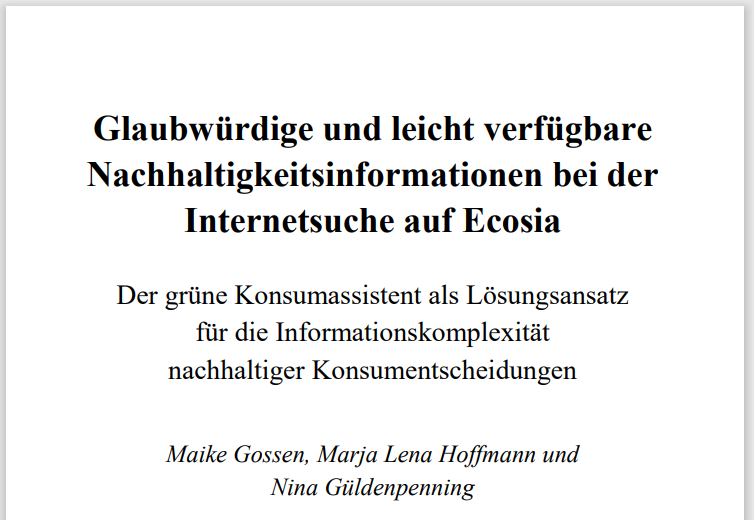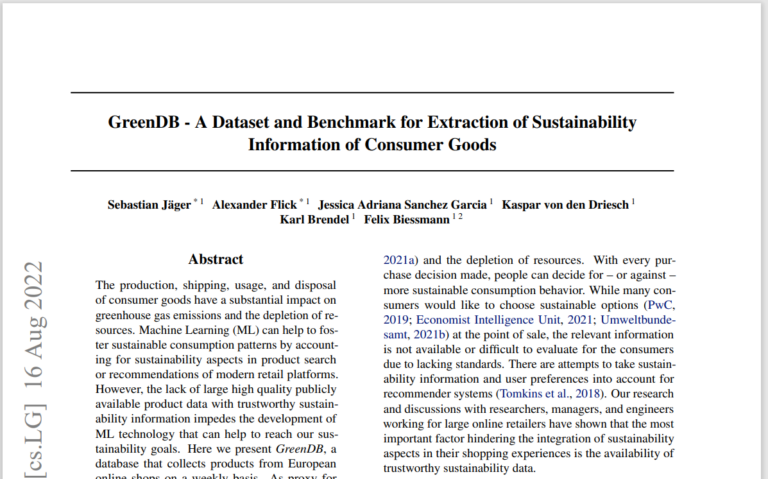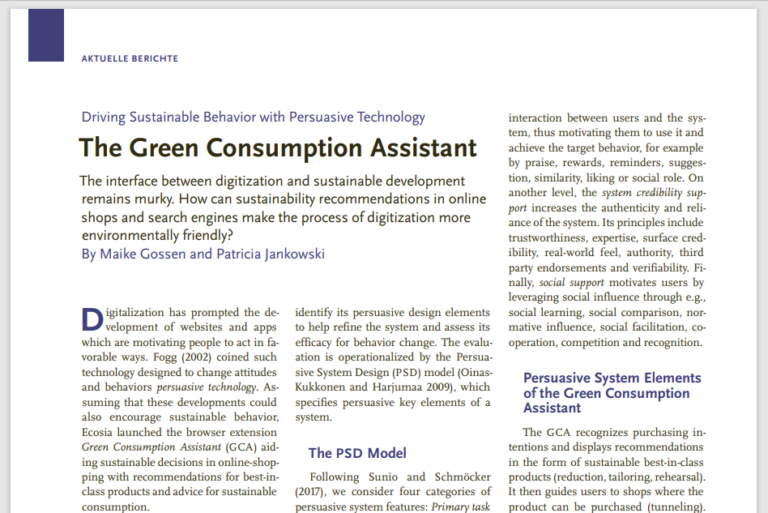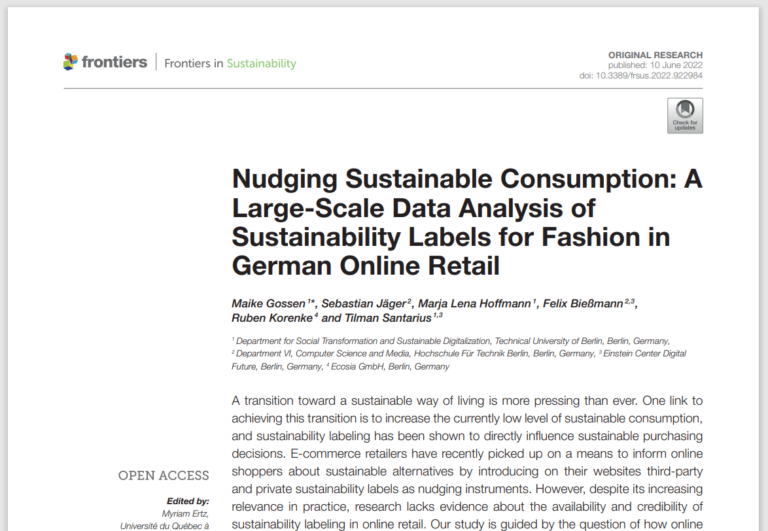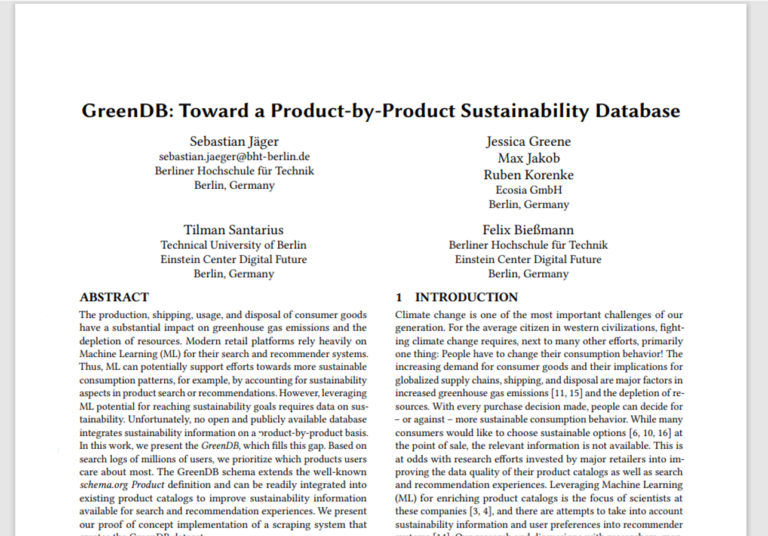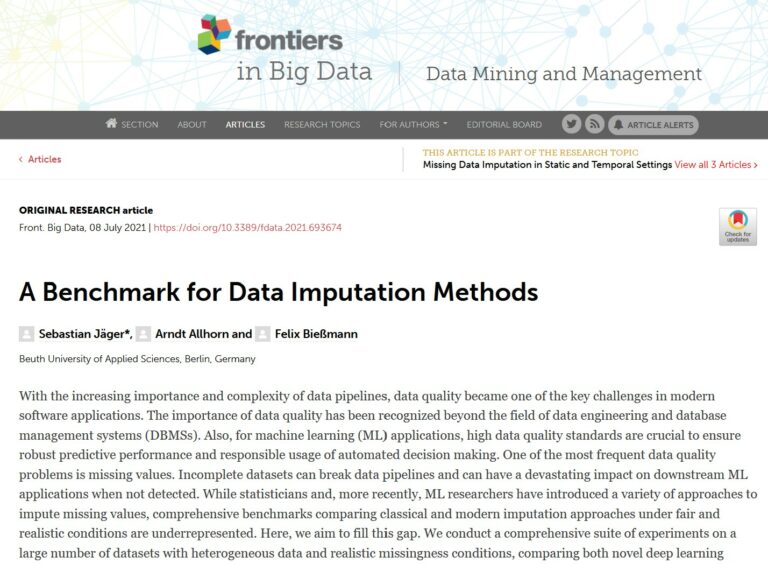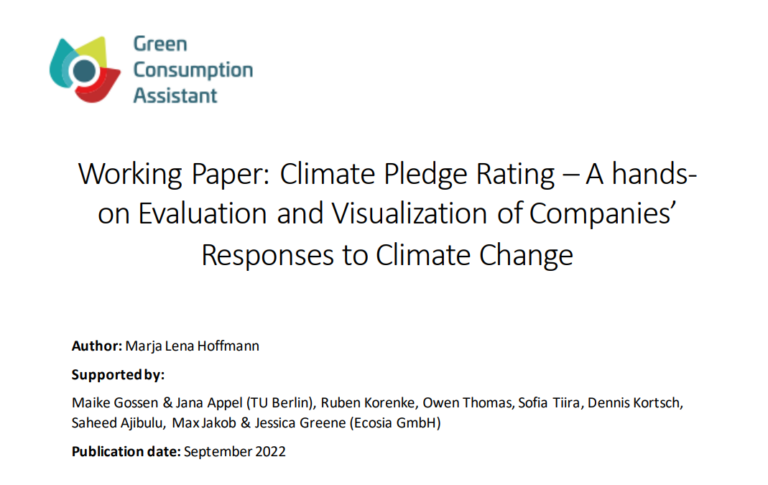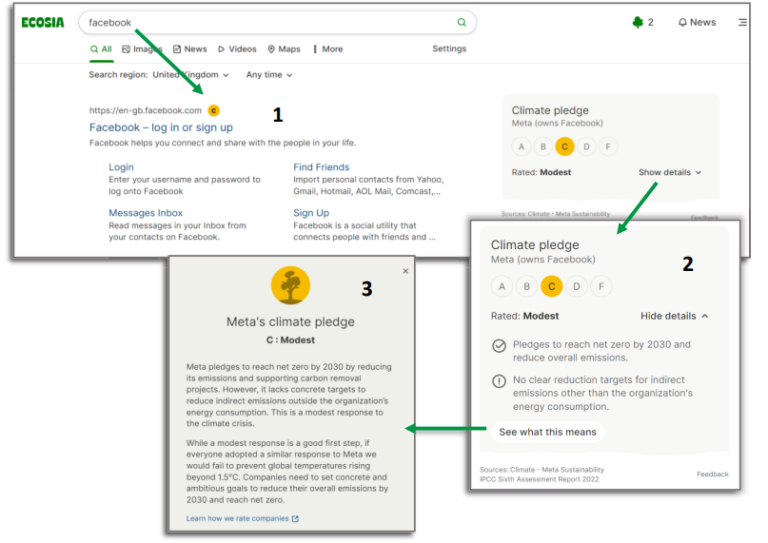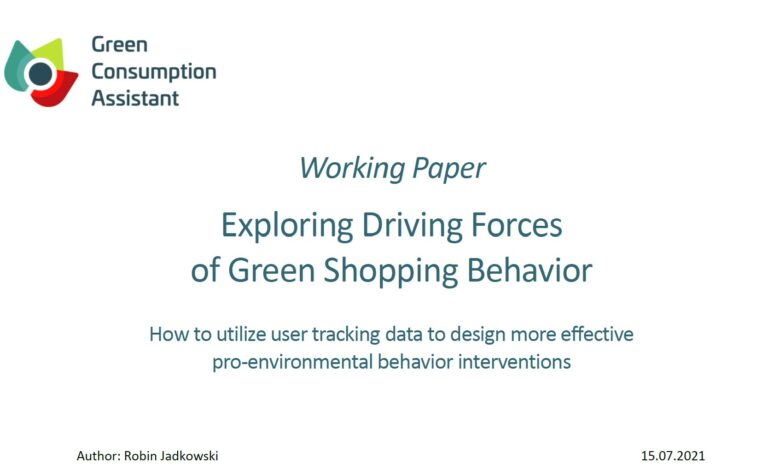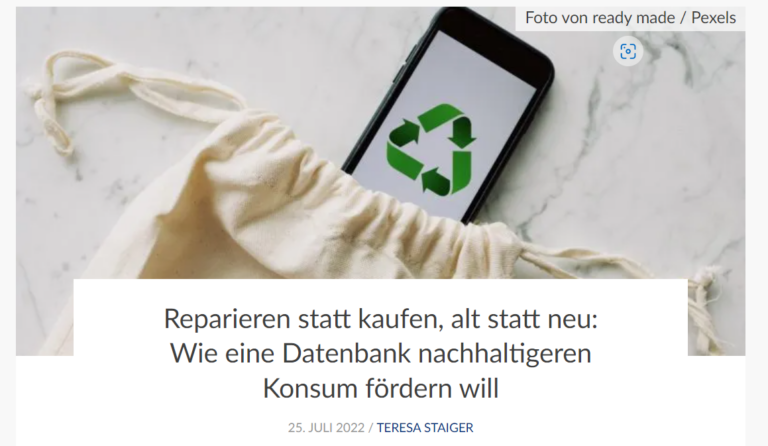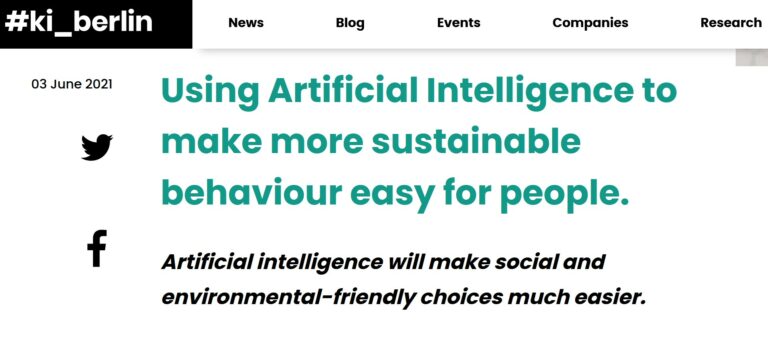In dem letzten Arbeitspapier der Green Consumption Assistant- Reihe untersucht das Team die Wirkung verschiedener Nachhaltigkeits-Interventionen in der Suchmaschine Ecosia auf potenzielle Verhaltensänderungen. Verschiedene Prototypen wie Nachhaltigkeitstipps, Quizzes und ein AI-Chat wurden dafür in einem Fokusgruppen-Experiment vorgeführt und Reaktionen ausgewertet.
Abstrakt:
Nutzer*innen von Ecosia wünschen sich bei der Informationssuche und Nutzung der grünen Suchmaschine Orientierungshilfe für einen nachhaltigen Lebensstil. Dafür ist es wichtig, den Informationsbedarf verschiedener Nutzer*innengruppen in Bezug auf Nachhaltigkeit besser zu verstehen, um überzeugende umweltbezogene Suchmaschinenfunktionen zu entwickeln. In dem Projekt Green Consumption Assistant haben wir daher eine qualitative Studie durchgeführt und untersucht, wie Nutzer*innen verschiedene Interventionen zur Verhaltensänderung der Suchmaschine wahrnehmen. Wir untersuchen drei Funktionen (Nachhaltigkeitstipps, Öko-Quiz und KI-gestützter Chat) und diskutieren die Prototypen mit insgesamt sechs Online-Fokusgruppen, die jeweils aus Personen mit unterschiedlichem nachhaltigkeitsorientiertem Hintergrund („Umweltbewusstseinstypen“) zusammengesetzt sind. Nach der Durchführung von Inhalts- und Stimmungsanalysen zeigen die Ergebnisse, dass die Wahrnehmung der Funktionen von der Präsentation der Funktion sowie von individuellen Faktoren wie dem Umweltbewusstsein abhängt. Die Nachhaltigkeitstipps wurden sowohl von Ecosia-Nutzer*innen als auch von den Aufgeschlossenen, Skeptischen und Unentschlossenen positiv aufgenommen. Der KI-gestützte Chat führte zu polarisierenden Diskussionen und wurde von Aufgeschlossenen, Konsequenten und Unentschlossenen als attraktiv empfunden. Umgekehrt fanden nur Aufgeschlossene und Ecosia-Nutzer:innen das Öko-Quiz attraktiv. Die qualitative Studie unterstreicht die Bedeutung der Segmentierung von Nutzer*innen und der Zielgruppenansprache zur Verbesserung der Wirksamkeit von Maßnahmen zur Verhaltensänderung. Die Studie regt an, die getesteten Prototypen auf Ecosia zu verbessern und bietet Einblicke in die Nachhaltigkeitsinformationsbedürfnisse unterschiedlicher Nutzer*innengruppen.
DOI: https://doi.org/10.14279/depositonce-20020

